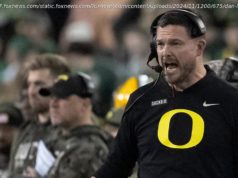The civil-rights leader is now celebrated as a modern founding father, a celebration that gives those who oppose his policy agenda a claim to his legacy.
Every year, on the third Monday in January, people play their hand at the same game. “What would Martin Luther King Jr. think?” becomes an unwritten essay prompt for op-eds, a topic of speeches and sermons, a call to action, and a societal rebuke. In this annual pageant, there are few who would ever mark themselves as living in opposition to the legacy of King, even as they work to dismantle it.
It was only natural that Vice President Mike Pence would quote King in defense of President Donald Trump’s decision to continue the ongoing government shutdown until he receives full funding for a border wall. “One of my favorite quotes from Dr. King was: ‘Now is the time to make real the promises of democracy’,” Pence said on CBS’s Face the Nation on Sunday, citing King’s famous 1963 “I Have a Dream” speech. “You think of how he changed America. He inspired us to change through the legislative process, to become a more perfect union. That’s exactly what President Trump is calling on Congress to do: Come to the table in the spirit of good faith.”
Pence, of course, is doing only what the current version of the holiday demands. Across the ideological spectrum, politicians must seek to fit themselves under the aegis of the Kingian legacy. That means a contingent of Americans who surely oppose the positions King held in his life are compelled to contort him into something friendly. Columns must wield King to attack everything from “ identity politics ” to the very act of “politicizing” King’s life itself. Democratic presidential hopefuls must employ King in order to make the case that each of their disparate platforms is the natural heir to his legacy. The sound bites evoking King are stretched like skin over the bones of existing debate. The figure celebrated looks nothing like the leader who lived—and who was killed—but like a granite-chiseled modern founding father, a collection of axioms by which our age is defined.
But beyond those axioms, there are core truths to who King was, what he believed, and what he endorsed. He was not an unknowable sphinx who spoke only in maxims. The first truth is that King was a person who began his career as a very young man, and who changed, learned, and grew over the course of a challenging and often controversial career.






